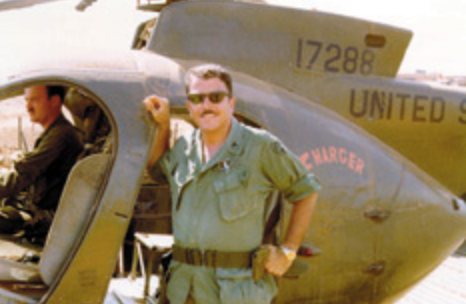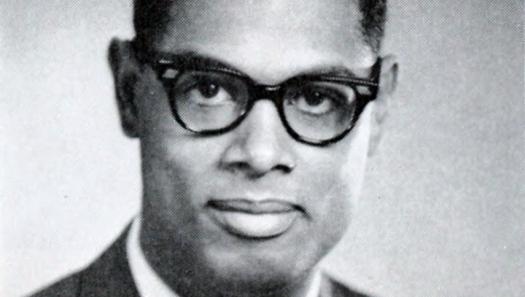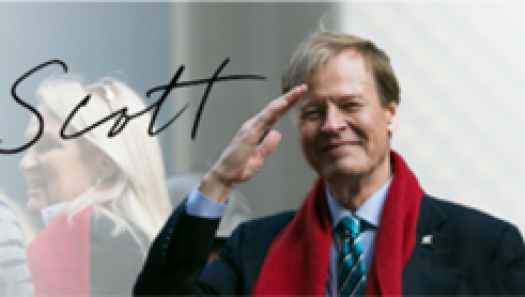WeSalute Awards
HeroVet: Dr. Frank Scarpa, Pro Bono Med Work for AmeriCares

For Frank Scarpa, bravado is a foreign emotion. Frank, who spent the better part of 1970 as a surgeon in Vietnam, never forgets to be thankful.
“I need to remember how fortunate I am to be here,” he said. He knows that too many of his fellow medical workers – doctors and medics, MedEVac pilots and crew – didn’t make it back to The World.
He also knows that he did what he could to help keep people alive – despite his misgivings about the American mission in Southeast Asia. “I went there as a doctor. My job was to take care of people even with my ambivalence about the whole thing,” he said during a telephone interview. “No one who has not been in a war can understand the insanity of it.”
A Reluctant Soldier
Captain Frank Scarpa was handing out cigars to celebrate the birth of his first son at Fort Campbell, Kentucky, in 1969 when he was handed an envelope. In it were orders that would send him to the world’s hotspot: Vietnam.
Arriving in-country, “frightened and green,” on the first day of February 1970, he was assigned as a general surgeon to the 17th Field Hospital in An Khe. Over the next six months he would treat Americans and Vietnamese, military and civilian, who got in the way of a bullet, a punji stick, or a bouncing betty.
Fear soon gave way to confidence, despite the sapper attacks and other hazards of the combat zone. (Oddly enough and perhaps a bit irrationally, he recalls, in the OR he never felt vulnerable, even during these attacks.)
One day at An Khe, a wounded grunt and Doc Scarpa were engaged in conversation. “I don’t know how you do what you do,” the young infantryman said. “And I don’t know how you do what you do,” the surgeon replied.
Helicopter Heroes
Later, as brigade surgeon with the 196th Light Infantry Brigade operating out of Hawk Hill north of Chu Lai, his education continued. He saw firsthand the traumatic amputations caused by the destructive power of mines, which were more prevalent in the flat land along the coast than in the mountains of the Central Highlands.
He came to appreciate the difference made by the use of MedEVac helicopters to whisk the wounded from the field to the well-equipped and -staffed evacuation hospitals, saving countless lives that otherwise would have been lost. The pilots and crews of these dustoffs became his heroes.
His days alternated between boredom and organized chaos. Adapting quickly to life in the war zone, he developed an abiding affection and loyalty to those with whom he served. Accompanying a patient with a life-threatening head wound to a hospital ship, he insisted that the chopper wait and take him back almost immediately. He could have taken a brief respite from the war, but “I just had to be with my people,” he said.
He also learned lessons and practiced emergency medicine he’d never contemplated at medical school or in the hospital at Johns Hopkins in Baltimore, where he did his internship.
Going Home
With less than two months remaining before his tour of duty was due to end, he received a message through the American Red Cross: His father was gravely ill, he was informed, and was undergoing a major surgical procedure. And “you’re going home tomorrow.”
Because of the graduated withdrawal of American troops from Vietnam, he never had to finish his year in Vietnam. For years afterwards, though, he would dream of being sent back to do another 28 days. Completing his tour at the United States Military Academy at West Point, he left the service to resume life as a resident at Vanderbilt Hospital in Nashville, Tennessee, and later as a practicing surgeon in Greenwich, Connecticut.
If past is prologue, Frank Scarpa’s experiences in Vietnam set the stage for his involvement with New Canaan-based AmeriCares, a nonprofit disaster relief and humanitarian aid organization which provides immediate response to emergency medical needs -- and supports long-term healthcare programs – irrespective of race, creed or political persuasion, in 137 countries across the globe.
During the war, Frank had developed a special affection for the Vietnamese people. He would bristle when he would hear the uninformed or the bigoted denigrate the Vietnamese – or people of any culture – because they “don’t regard the sanctity of life the same way we do.”
Armed with the belief that all human life is precious, for the past decade he has taken his skills as a surgeon to places wracked by war (Croatia) or natural disaster (Turkey).
He has spent a week in each of the past two years in Haiti, the poorest country in the Western hemisphere, performing surgery in remote backwaters. Which helps fulfill the reason he went into medicine in the first place: to help and to heal.



